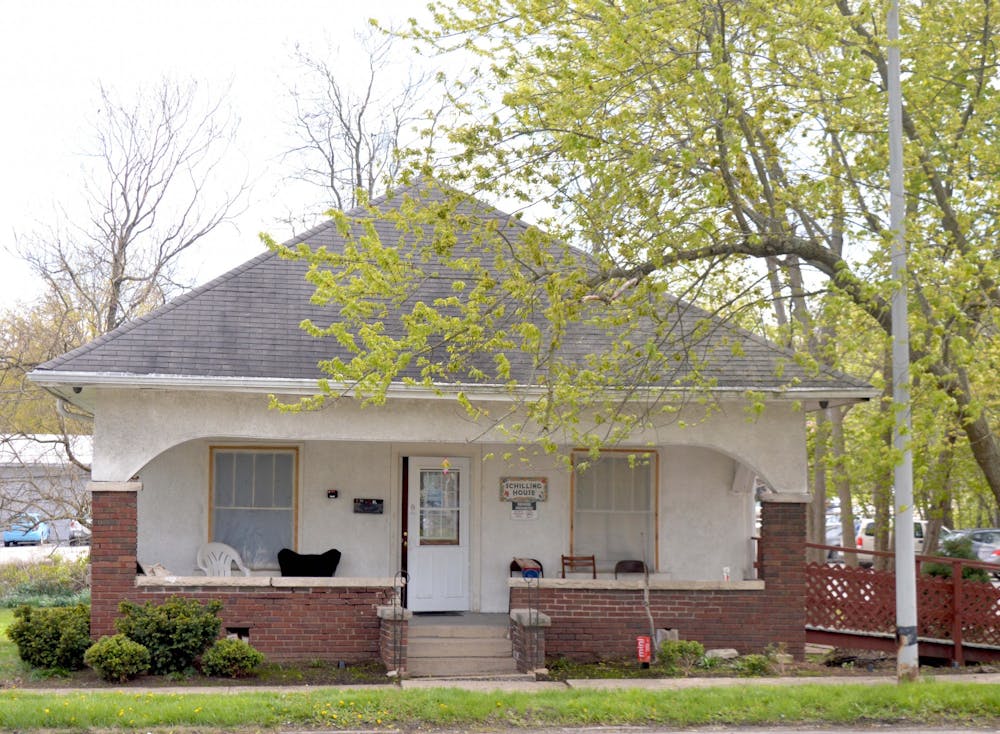Bloomington’s City Council met Wednesday to vote on several amendments to the Unified Development Ordinance, a document that governs how land is used and developed in Bloomington. Although the final changes won’t be solidified for some time, Wednesday’s meeting allowed council members to review certain proposed changes to the UDO.
Among these was an amendment that would allow for eased restrictions on the construction of homeless shelters. The definition of supportive housing for people experiencing homelessness was changed to a “temporary or permanent shelter” with “no requirement that the persons live in a single housekeeping unit or that the shelter provide care exclusively to persons requiring medical, correctional, or other mandated supervision or a protective environment.”
The amendment was approved unanimously by the council.
The approval of this amendment is a great first step toward giving Bloomington’s unhoused community the attention and care they deserve, and will likely result in more individuals and families having a place to live.
But it’s also important to note that this amendment does not make up for past mistakes, nor does it “fix the problem.” Bloomington residents must continue to hold city officials accountable and advocate for further, more comprehensive protections for its unhoused community.
The UDO contains a definition of supportive housing — the term the document uses to refer to homeless shelters — which sets certain rules and restrictions that can act as hurdles for advocates for Bloomington’s unhoused community.
“When we read that definition, it didn’t quite fit with the definition that we felt it needed to be to be able to house homeless families and individuals faster,” said Chris Cockerham, a member of the Bloomington Plan Commission.
Related: [Bloomington City Council looking for students to apply for redistricting commission]
The definition claims, for example, that those in supportive housing must live “together with staff,” a restriction that those in support of the amendments deem an unnecessary barrier in finding unhoused individuals and families a place to stay.
Cockerham said that while staff needs to be readily available, 24-hour supervision is not necessary, citing the way staff is utilized at the Bloomington shelter New Hope For Families as an example.
He also said the definition’s requirement of “treatment for the exclusive use of persons requiring medical, correctional, or other mandated supervision” made the goal of providing people with housing quickly more difficult.
Housing as many individuals and families as quickly as possible is an important goal. There are lives at stake, and shelters can provide protection from the elements and other dangers.
This is especially important given the fact that Bloomington city officials have treated the city’s unhoused community with both indifference, as evidenced by the council striking down an ordinance in March that would’ve given certain protections to homeless encampments, and outright animosity, as shown by the forced removal of the homeless encampment in Seminary Park in December 2020.
There’s clearly room for improvement in how the city treats the unhoused community, and this amendment, with its simple and straightforward goal of providing shelter to lots of people quickly, is definitely a step in the right direction.
Similarly, the council also approved a different amendment Wednesday which allows affordable housing projects constructed in areas classified as residential urban to have the relaxed building restrictions which were previously afforded to all zoning areas except for residential urban areas. This represents an increased level of awareness by the council of the importance of building more accessible permanent living arrangements.
However, these changes are still quite small in the grand scheme of things, and Bloomington city officials must recognize that incremental action can only do so much. Sometimes, more sweeping legislation is needed.
Shelters are temporary after all, and for all the increased space that the eased restrictions will supply, there will be costs to come along with it. Changing the definition to no longer require facilities used exclusively for medical purposes, which was done Wednesday night, might leave less people without shelter, but may increase health risks for shelter residents.
This raises more broad questions, such as how America’s healthcare system functions more generally, but for now, Bloomington residents can facilitate change by continuing to pressure city officials. Participation in events such as the protest during the NCAA men’s basketball tournament games at Simon Skjodt Assembly Hall may seem small in comparison to the political power of officials, but the combined power of determined people is a force to be reckoned with. It’s important to keep advocating and raising awareness until more meaningful, permanent protections are provided for our city’s most vulnerable citizens.
Molly Hayes (she/her) is a junior studying English. She plans to work in the book publishing industry.




